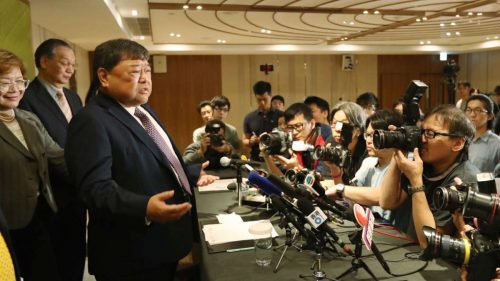
Various professions come with a code of conduct that’s adhered to a greater or lesser extent: doctors, lawyers, builders, soldiers. In each case, this is a recognition that these people have the power to both help and harm, and following a few guidelines has been shown to limit the risk.
The basic danger of ignoring these rules is clear: once listeners realize that you’re not following them, any commentary on current events will be left feeling empty and suspect to your audience. Any reporter who is found guilty of a serious ethical breach will have the reputation of a pariah, and will struggle to find future employment even at less reputable sources of news. Finally, getting it wrong can result in lawsuits under defamation and libel laws, and settlements are often substantial.
Editorial Independence

Every broadcaster that hopes to become popular knows to “respect the audience” and not transmit messages that would be offensive to them. Unfortunately, a small proportion of listeners have trouble distinguishing between moral outrage and someone simply disagreeing with them.
Advertisers also frown on shenanigans that will put their own brands in a bad light (pro tip: don’t call someone who doesn’t share your views a “slut” and “prostitute on live air). And, it’s an open secret that how news on controversial subjects is reported, including everything from climate change to political campaigns, affects where they choose to spend their money.
News editors and discussion hosts therefore have to walk a fine line between commercial viability and the accurate representation of current events. This can be done in a number of ways, for instance, by clearly separating factual reporting from opinion. A plane crash is a fact, speculating about its causes before the official verdict is released is opinion.
Equally, reporting on any issue should be balanced and reflect at least the views of the main players (think of how many reports you can remember on U.S. soldiers compared to Iraqi civilians). Balanced reporting does not mean that every bigoted or unfounded opinion should receive equal play, but that their contexts and supporting evidence are presented fairly. For example, if a famous expert is to participate in a debate, every effort should be made to find him an equally distinguished opponent, while the host may want to declare his own views or any conflict of interest explicitly.
Humanity and Compassion

All of us will remember the Boston Marathon bombing, but aren’t our memories of such incidents based mostly on what the media reported?
In fact, it seems that some editors saw the event as a payday rather than a tragedy. The death toll was initially inflated by a factor of four, while one newspaper published photographs of two “suspects” that had already been cleared by police, and in fact had been nowhere near the blast. They are currently suing the newspaper for the distress and notoriety this inflicted on them. Not to be outdone, CNN reported that an arrest had been made without checking this fact.
Reporters often cover sensitive stories or interview emotionally distraught people. At the same time, inaccurate reporting in the name of being first with the story can literally ruin lives. Subjecting bereaved persons, or those accused of a crime, to ambush journalism is not supporting the public’s right to know unless it yields information that is actually in the public interest. Listeners may have an attraction to scandal or prurient stories, but covering them requires greater ethical standards, not weaker. When publishing a story may cause harm to some individual, no matter how unpopular, it is advisable to get legal advice about how far his privacy has to be respected.
Honesty

Good sources are more valuable than gold to any journalist who actually investigates stories (as opposed to reporting at second hand). However, for personal, professional or legal reasons, they will often be hesitant to speak under their own name. For this reason, anyone who gives information “off the record” is entitled to their identity being protected by reporters, even to the point of serving jail time. This principle applies to a person’s identity, as well as ancillary information that may be used to track them down, such as the neighborhood in which they live. The conditions and reasons for anonymity, as well as other conditions, have to be negotiated right at the outset.
Speaking of sources, plagiarism remains a real problem within the news community. For this reason, any information gained from other outlets should be credited accordingly. It’s also very bad practice, yet done, to claim that an interviewee or even the journalist himself was an eyewitness to some event – no amount of accuracy can be expected in these circumstances.
Finally, journalism can be a demanding job, in which a person searches out information that’s not generally known on a tight deadline. At some point, every reporter has to decide when enough is enough. Were comments sought from everyone affected? How many independent sources are needed for confirmation of key facts? Has the story been fleshed out enough, or is it distorted by oversimplification? Formal ethical guidelines can only help a person so far – at the end of the day, a decision often amounts to a judgment call which the person making it will have to live with.
